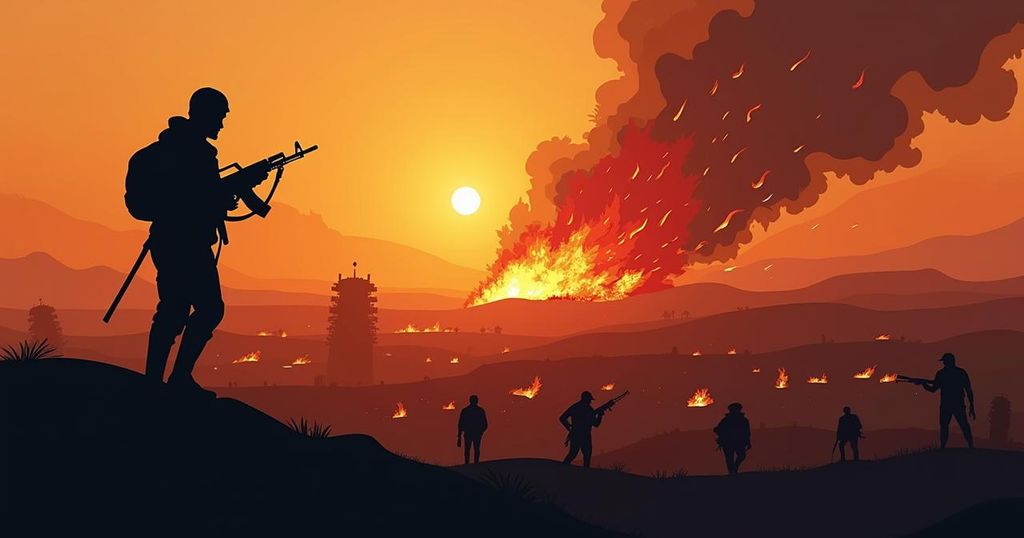Is a Wider War in the Middle East Inevitable Following Nasrallah’s Assassination?
The assassination of Hezbollah leader Hassan Nasrallah raises fears of renewed conflict in the Middle East, particularly involving Iran and Israel. Despite U.S. efforts to mediate, the situation remains precarious. Iran’s possible reactions and Israel’s potential military actions could trigger wider hostilities, with implications for regional stability.
The recent assassination of Hassan Nasrallah has created an atmosphere of unease and raised serious questions about the potential for a renewed conflict in the Middle East. As concerns mount regarding Iran and Hezbollah’s subsequent actions, the United States, alongside its allies, is eager to mitigate any escalation. President Biden has referred to Nasrallah’s killing as a form of “justice”, given Hezbollah’s designation as a terrorist organization responsible for numerous deaths of Western citizens. However, amid calls for de-escalation and diplomacy, the looming question remains: will these efforts suffice to prevent a larger regional conflict? The failure of U.S.-led diplomatic initiatives raises further anxiety over the Middle East’s stability. A senior Middle Eastern diplomat remarked that the assassination represents a “kick in the teeth” for President Biden, emphasizing the unmet expectation of a ceasefire from the Israelis, particularly in the twilight of his presidential term. The aftermath of this event now heavily hinges on the decisions made by both Iran and Israel. Iran faces a dilemma; it may feel pressured to protect Hezbollah, which it has long viewed as a vital ally against potential Israeli assaults. Should Iran perceive Hezbollah’s existence as endangered, it might reconsider its position. However, direct intervention poses significant risks, considering Iran’s weakened state due to economic sanctions and domestic unrest. Moreover, any aggressive posture from Iran could prompt a robust response from Israel’s allies, particularly the United States, igniting a broader conflict that could engulf the region. Despite the volatile environment, Iran’s leadership historically prioritizes its domestic stability over rash military actions. As such, the ayatollahs may opt for caution, recognizing the limitations of their capabilities beyond their borders. Turning to Israel, there remains the possibility of a tactical ground invasion into Lebanon to reclaim territory from Hezbollah. However, such a move risks further complicating the already delicate balance in the region and could draw in various external militant groups.
The ongoing conflict in the Middle East has been exacerbated by the assassination of Hezbollah leader Hassan Nasrallah, which poses a significant threat to regional stability. Nasrallah’s death could provoke reactions from both Iran, a principal ally of Hezbollah, and Israel, intensifying the historical tensions in the region. The U.S. has attempted to mediate tensions, but their efforts appear to have faltered, with significant implications for future diplomatic relations and security strategies. As Iran grapples with challenges to its domestic power and the efficacy of its regional ally, Hezbollah, the dynamics of conflict and alliance in the Middle East could undergo drastic changes.
In conclusion, the recent assassination of Hassan Nasrallah has escalated tensions in the Middle East and raises critical questions regarding the potential for a wider war. While the United States and its allies strive to prevent further conflict through diplomatic means, the actions of Iran and Israel will ultimately shape the course of events. The region’s historical complexities and the precarious balance of power underscore the urgency of careful management of these tensions, as the repercussions of escalation could be devastating on a broader scale.
Original Source: news.sky.com




Post Comment